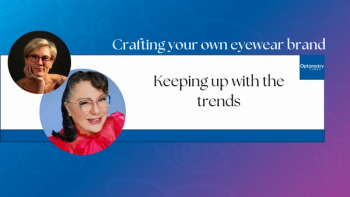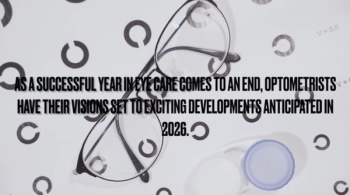
IACLE’s virtual conference highlights a bright future for contact lenses
Panellists dive into the newest developments in the contact lens space
Positive developments in the contact lens industry have arisen as a result of the COVID-19 pandemic, according to contact lens experts. Industry leaders who took part in the first-ever International Association of Contact Lens Educators (IACLE) Virtual Conference on September 26, 2020, discussed the exciting future of contact lenses.
More than 200 delegates took part in the live conference. Members participated via Zoom, while non-members and students watched selected sessions on Facebook.
A panel discussion chaired by IACLE Vice President Professor Philip Morgan,BSc, PhD, MCOptom, FAAO, FBCLA, included:
· Cheryl Donnelly, Head of International Professional Affairs and International KOL Lead – Vision Care at Alcon
· Gary Orsborn, OD, FAAO, Vice President Global Professional, Medical & Clinical Affairs, CooperVision
· John Meyler, Global Head, Professional and Clinical Education, Johnson & Johnson Vision
· Osbert Chan, Director of Medical and Clinical Affairs for Bausch + Lomb, Asia Pacific
During the discussion, key developments for the contact lens sector arising from the COVID-19 pandemic were revealed, including:
· Collaboration among industry, practitioners, scientists, and educators to dispel myths about the safety of contact lens wear at the early stages of the pandemic
· Lack of going out, socializing, and playing sports were the reasons for patients wearing contact lenses less, rather than safety concerns
· Hygiene now “top of mind” for patients and practitioners
· Efficiencies in appointments and services, such as telemedicine
· Rising demand for online ordering, direct-to-patient delivery and digital engagement
· Recognition that contact lenses are an important, ongoing revenue stream for practices
· Acceptance of online learning among industry, practitioners, educators, and students
· Opportunities for wearing contact lenses to avoid spectacles fogging and to enhance eye appearance when wearing face masks and coverings
Looking ahead
Every member of the panel expressed optimism for the contact lens industry’s future and identified major changes to best practices in contact lens care, as a result of the pandemic.
Among changes described by Donnelly is patient purchasing habits for contact lenses and how and where patients interact with practitioners.
“We need to look at how patients want to engage and consider changes to our practice patient journey to allow for the imposed and required changes,” Donnelly said.“It’s not about doing things to a lesser extent clinically… but doing things differently.”
Orsborn said he anticipates a permanent change in the average patient journey with contact lenses.
“Virtual aftercare appointments, I believe, will improve the situation we have in retaining patients in contact lenses and this should result in fewer dropouts, because of the effectiveness of improved virtual communications,” Orsborn said. “Expect to see increased investment in telemedicine solutions for eye care.”
Meyler said there’s a smarter way for the sector to work going forward that will improve the patient experience.
“This has been a time to reflect on how we can do things more efficiently and better serve patients,” Meyler said. “I think the future’s very bright for the industry.”
Chan reflected the same optimism for the future of the contact lens space.
“We know what to do,” Chan said. “We need to learn how to live with the virus and how to overcome it.”
IACLE and its members congratulated contact lens educators worldwide on their pandemic response. “From the IACLE perspective, you’ve stepped up education delivery so well in these last few months and have led the way with the Teach. Learn. Connect. (TLC) Initiative,” said Donnelly.
A recording of the conference is available to IACLE members on its learning management system,
Newsletter
Want more insights like this? Subscribe to Optometry Times and get clinical pearls and practice tips delivered straight to your inbox.










































